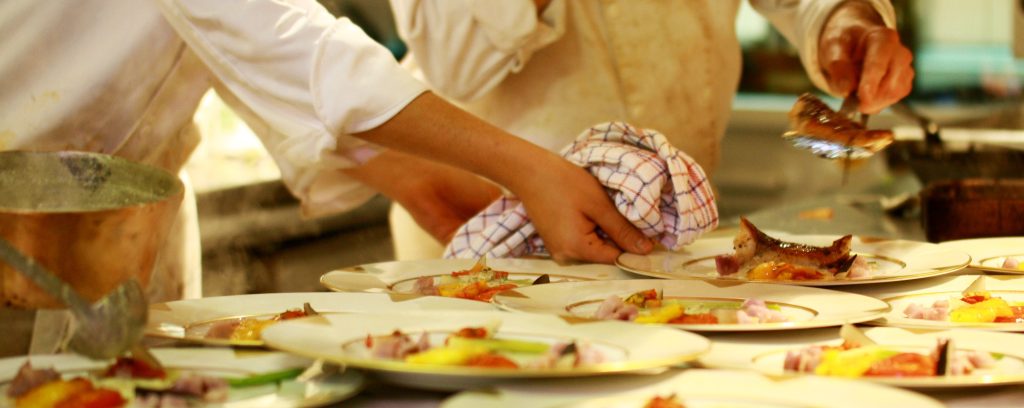The Pollenzo Cookery School, developed by the University of Gastronomic Sciences in collaboration with Slow Food, will offer two one-year Italian cookery courses:
- in Italian: June 2014 – June 2015
- in English: September 2014 – September 2015
Each course will be open to a maximum of 20 students and will be taught in the facilities of the Corte Albertina in Pollenzo, adjacent to the UNISG lecture halls and bordering with the Agenzia di Pollenzo complex.
The courses are designed for people with proven experience in the culinary field, as well as a limited number of enthusiasts willing to spend a preparatory period in Agenzia di Pollenzo complex facilities — such as the Tavole Accademiche, or Academic Tables, university canteen — prior to commencing classes.
Candidates may enroll directly on the www.unisg.it website from November.
Distinctive features of the course:
- Cooking as passion, pleasure and sharing;
- No culinary training in the traditional sense of the term, but opportunities of practical experience for people keen to work or starting to work in the field;
- Involvement in the choice of primary ingredients and all this implies (i.e., considerations of eco-sustainability, knowledge of local areas and producers and so on) prior to the cooking/processing stage;
- Focus on food products: cereals and their by-products, meat, fish, groceries (spices, chocolate, coffee etc.), eggs, milk and dairy produce, additives (salt, preservatives), fats (butter, oil), alcohol and sugar. Each food product will be addressed through a combination of practical and theoretical lessons, and product analysis will be supplemented by study of the following subjects: history, agricultural and food production, chemistry, technology and sensory analysis.
- Talks about single food products by experts, such as cooks, producers and professional tasters.
- Subjects specifically related to food products supplemented by basic theoretical lessons on: the History of Italian Cooking, Relationships between Italian and Other Cuisines (Kosher, Classic French, Arab, Contemporary Spanish), the Influence of Italian Cooking Worldwide, Nutrition, Management, Communication, Art and Aesthetics;
- At least three study trips to acquire firsthand knowledge of local areas and producers;
- Alternation between lessons in Pollenzo and training periods in Italian restaurants and osterias.
Course syllabus:
- 2 months: practical and theoretical lessons in Pollenzo;
- 3 months: experience at an Italian osteria selected from the Osterie d’Italia guide published by Slow Food Editore;
- 2 months: practical and theoretical lessons in Pollenzo with group discussions about the various osteria experiences;
- 3 months: experience in an Italian restaurant;
- 1 month: practical and theoretical lessons in Pollenzo with group discussions about the various restaurant experiences.
A series of weekend, evening and summer courses for food lovers is currently in preparation. Full details will be available at the start of 2014.

